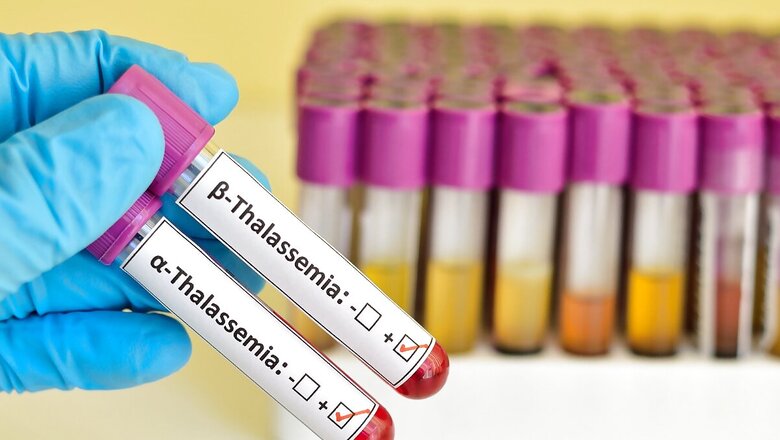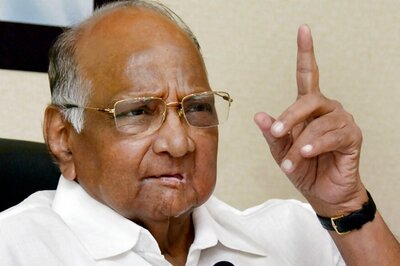
views
Staffing shortages, inadequate supplies of blood sets, testing kits, injections, and more are hindering thalassemia patients from accessing crucial blood transfusions at Delhi government-run Deen Dayal Upadhyaya Hospital, Guru Teg Bahadur Hospital (GTBH) and Baba Saheb Ambedkar Hospital, News18 has learnt.
The GTBH, in its statement, said: “Due to technical problems with the GeM portal, there was difficulty in procuring the recommended ELISA test kit for mandatory Anti-Hepatitis-C testing (fourth generation) before blood transfusion. Now, the interim supply has been received and the issue has been resolved.”
Concerned by the tragic death of teenager Fayza Ansari, who was denied blood cancer treatment due to a shortage of medicines and beds in various Delhi hospitals, numerous parents and patients have come forward to recount their experiences of facing similar shortages of medicines and other equipment required for the treatment.
They narrate the challenges faced during blood transfusions in these hospitals over the past six months and assert that the situation has been deteriorating rather than improving.
Sixty-year-old Manjula (name changed) is struggling to get monthly transfusions for her 20-year-old son in Delhi’s Deen Dayal Upadhyay Hospital.
Her son, who suffers from the chronic blood disorder thalassemia, requires a transfusion of three units of blood almost every 25 days. He has been receiving blood transfusions in the same hospital for the last two decades. He is among more than 300 thalassemia patients who are enrolled with the DDU hospital for regular blood transfusions.
“He has been given blood transfusions without phenotype testing which increases the chances of allergic reactions. However, we have to agree for such transfusions because the hospital does not have phenotype testing kits and we don’t have margins for waiting for too long without blood transfusions,” Manjula said, adding that the family has been struggling with such situations for five months.
RBC phenotyping involves identifying the antigens present in red blood cells (RBCs), which is critical for those who undergo blood transfusions frequently. Such testing protects patients from adverse events or allergic reactions during transfusion.
Such patients also require medicines to remove excess iron post transfusions as blood transfusions result in the collection of excess iron in the body.
“Earlier, the hospital was providing Deferasirox medicine manufactured by one of the largest pharma companies in India. However, now they have replaced the brand with a local manufacturer due to which children are taking time to respond to a new brand and its efficacy.”
Dr JS Arora, general secretary of the National Thalassemia Welfare Society, confirmed that his office has been receiving complaints from several patients for the last four to five months.
“It has been brought to our notice that patients at certain hospitals such as Deen Dayal Upadhyay Hospital, Guru Teg Bahadur Hospital and Dr Baba Saheb Ambedkar Hospital have not been getting adequate blood due shortage of testing kits and other necessary materials for the last 4-5 months,” Arora said.
He added that such shortages should be fixed immediately as they create life-threatening conditions for these patients.
“Thalassemics require a blood transfusion at regular intervals. If they don’t get adequate blood in time, they land into severe anaemia and become prone to infections. With continuous anaemia, spleen enlarges which further increases blood requirement and a vicious cycle develops,” Arora explained.
On November 29, Arora also sent emails to the office of Chief Minister Arvind Kejriwal. However, he is yet to receive any response.
Speaking to News18, seven patients and their relatives raised concerns similar to those voiced by Manjula. However, they all chose to remain anonymous, citing apprehensions about needing future blood transfusions at the same hospital and, therefore, refrained from expressing dissent against the hospital staff.
Another senior official, working in the blood bank department of Dr Baba Sahib Ambedkar Hospital, told News18 that they have been suffering from “shortages of almost everything”.
“Despite multiple requests to the seniors, we are facing a shortage of technicians in the blood bank for testing along with a shortage of material required for smooth functioning of blood back. We are running short of testing kits, blood packets, syringes, injections and many other products required daily,” the official said.
No one available to answer the concerns
News18 tried to reach Dr BL Chaudhary, medical director of DDU hospital, over call and text messages. He is yet to respond.
Dr Asmita M Rathore, medical director at GTB Hospital, communicated to News18 that the hospital’s media in-charge will respond shortly. Subsequently, the media in-charge stated that they would send comments on the query as soon as possible. The story will be updated to incorporate any responses received.
On December 5, News18 sent emails to the Department of Health and the office of Chief Minister Arvind Kejriwal seeking a response. As of now, no response has been received. Any updates will be incorporated if a response is received.
According to the government data, India has the largest number of children with Thalassemia major – nearly 1.5 lakh — and almost 4.2 crore carriers of beta thalassemia trait. Close to 15,000 babies with thalassemia major are born every year and are dependent on transfused blood for survival. Overall, there are more than 27 crore thalassemia patients in the world.



















Comments
0 comment